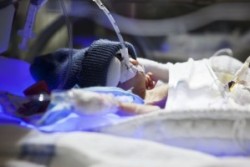Top Class Actions’s website and social media posts use affiliate links. If you make a purchase using such links, we may receive a commission, but it will not result in any additional charges to you. Please review our Affiliate Link Disclosure for more information.

Study Links Paxil and Prozac to Birth Defects
The study conducted by the Centers for Disease Control and Prevention (CDC) analyzed conflicting results from previous antidepressant birth defect studies along with new data on nearly 28,000 births.
However, it found no links between birth defects and other antidepressants such as Zoloft, Celexa and Lexapro.
Published in the British Medical Journal (BMJ), the antidepressant birth defect study researchers collected data from 28,000 women as to what medications they took in the month before they got pregnant and during the first three months of pregnancy.
Researchers then analyzed whether women who took certain antidepressant medications called selective serotonin reputake inhibitors (SSRI), such as Paxil and Prozac, were more likely to have children with birth defects than women who did not take those medications.
In women who took those two drugs early in pregnancy, birth defects occurred 2 to 3.5 times more frequently compared with women who did not take them.
Researchers caution that the study does not conclude that Prozac and Paxil side effects cause birth defects, but it provides strong support for some links suggested by previous studies on SSRI antidepressants.
Specifically the study reported four significant findings:
- Both Paxil and Prozac were linked with heart defects that obstructs blood flow from the heart to the lungs.
- Paxil was linked with holes in the heart wall and with anencephaly, a condition in which babies are born without parts of the brain and skull.
- Prozac was linked with irregularly shaped skulls.
- Paxil was linked with abdominal wall defects (though researchers state that evidence is not as strong).
Earlier studies have raised questions about SSRI antidepressants prompting the Food and Drug Administration (FDA) in 2005 to issue a safety warning about use of the antidepressant treatments during pregnancy.
SSRI Antidepressants and Pregnancy
Depression is a fairly common condition during pregnancy, and it has been estimated that as many as 20 percent of pregnant women experience it at some point.
While most physicians would shy away from prescribing medications during such a crucial period, there are instances when the depression would be so severe as to have a considerable detrimental effect on the health and well-being of the mother.
If the depression is so severe that the even everyday tasks become a burden, or if the mother begins to entertain thoughts of suicide, a doctor may prescribe antidepressants such as Paxil or Prozac as a last recourse.
Antidepressant Birth Defects Lawsuits
Over the past decade, there has been a noticeable rise in the number of birth defect lawsuits related to the use of SRRI antidepressants. This class of antidepressants was widely prescribed to pregnant women during the first decade of the 2000s, with potentially devastating effects.
SSRI birth defects can require multiple surgeries and other special medical care, placing a heavy burden on the child’s family. Those who elect to pursue legal recourse, however, may be able to file a claim seeking compensation for these medical expenses and other damages resulting from their child’s antidepressant birth defects.
If your child was born with an SSRI birth defect and you took Paxil, Prozac, Zoloft, Lexapro, Celexa or another antidepressant during pregnancy, you may be entitled to financial compensation.
Do YOU have a legal claim? Fill out the form on this page now for a free, immediate, and confidential case evaluation. The birth defect attorneys who work with Top Class Actions will contact you if you qualify to let you know if an individual lawsuit or class action lawsuit is best for you. [In general, birth defect lawsuits are filed individually by each plaintiff and are not class actions.] Hurry — statutes of limitations may apply.
ATTORNEY ADVERTISING
Top Class Actions is a Proud Member of the American Bar Association
LEGAL INFORMATION IS NOT LEGAL ADVICE
Top Class Actions Legal Statement
©2008 – 2024 Top Class Actions® LLC
Various Trademarks held by their respective owners
This website is not intended for viewing or usage by European Union citizens.
Get Help – It’s Free
Join a Free Birth Defect Lawsuit Investigation
If you or a loved one took Zoloft, Prozac, Lexapro, Effexor, Celexa, Cymbalta or Depakote during pregnancy and gave birth to a child with a congenital defect, you may have a legal claim against the drug’s manufacturer. Find out if you qualify to pursue compensation for your child’s medical expenses, pain and suffering, and other damages by filling out the form below now.
An attorney will contact you if you qualify to discuss the details of your potential case.
Oops! We could not locate your form.












